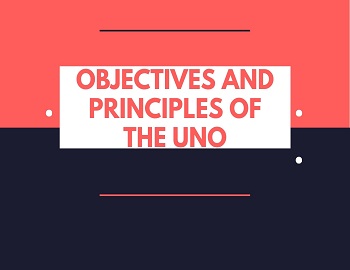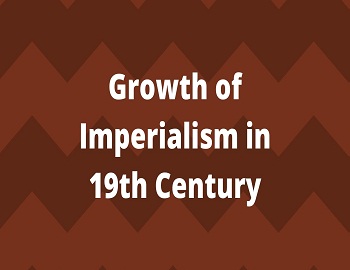Table of Contents
Objectives and Principles of the UNO:
The Charter of the UNO is more elaborate than the Covenant of the League of Nations. It has 10,000 words, 111 articles and 19 chapters. The declaration of the UNO says that to dispel the fear of war forever, to defend the fundamental rights of man as well as the prestige and ability of men and women and the equal rights of all the nations big or small, to establish justice, to make social progress and to raise the standard of life the UNO has been founded.
Objectives of the UNO:
Article 1 of the Charter describes the four main objectives of the UNO-
(1) To maintain international peace and security. To make effective and joint efforts to keep away the hazards to peace. To repress the powers that violate peace and to solve international disputes according to international laws.
(2) To promote widespread peace and to develop friendly relations among the nations on the basis of equality and freedom.
(3) To draw upon international cooperation for solving economic, social, cultural and intellectual problems of the world and to promote human rights and fundamental freedoms without any discrimination.
(4) To make UNO a centre where individual efforts made by the nations to achieve the above objectives might be coordinated.
Besides the above, it was also admitted that no interference would be made in the internal affairs of a member nation till it worked according to the Charter of the UNO. All the members were made jointly responsible for maintaining world peace.
Principles of the UNO:
(1) The sovereignty and equality of the member states are inviolable. Equal status has been granted to all member nations whether big or small, they would send an equal number of representatives and would have an equal voting right.
(2) Every member nation will honestly carry out all the responsibilities imposed on it by the Charter of the UNO.
(3)The members are committed to resolving their disputes in a peaceful manner.
(4) The members will not do anything against the objectives of the UNO. They will neither threaten nor engage in war against each other.
(5) No member will help the nation that violates the Charter of the UNO and will cooperate in every manner with the action taken by the UNO.
(6) To maintain peace and security, the UNO will make arrangements that even the non-member nations act according to the Charter.
(7) For the maintenance of peace, the UNO will not interfere in the internal affairs of a nation unless it becomes imperative to do so.
The above principles sound very well as ideals but present several difficulties in their practical implementation. For example, all the member nations have been granted the right of equality by the Charter but the five members of the Security Council enjoy a special status that goes against this principle.


![Jallianwala Bagh Massacre [April 13, 1919] 3 Jallianwala Bagh Massacre](https://gkscientist.com/wp-content/uploads/2020/09/Jallianwala-Bagh-Massacre-350x200.jpg)






Comments (No)